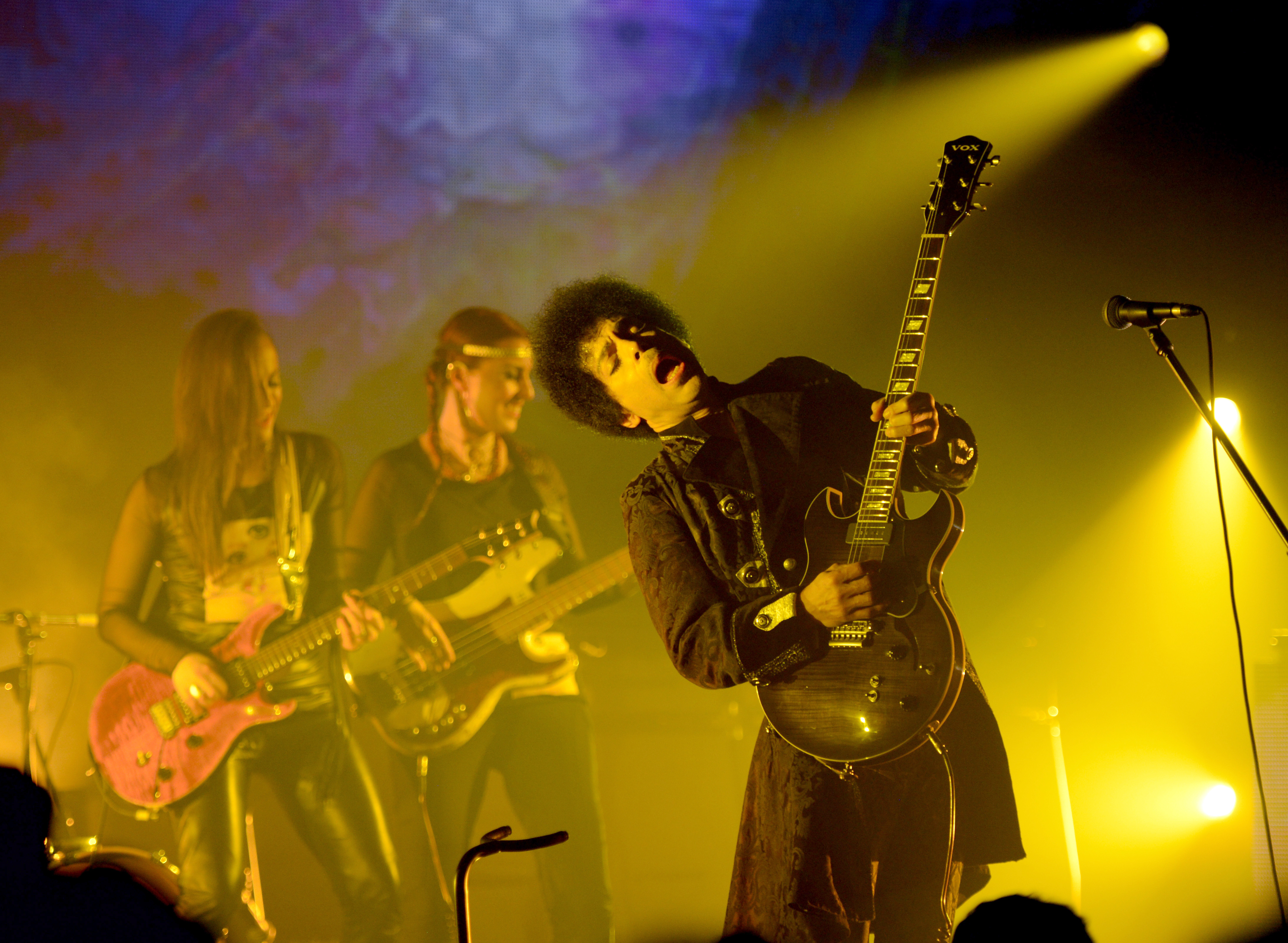By John Roderick, as Told to Aja Pecknold
I only ever listen to early-’80s metal, so here are Five Songs From the 1981 New Wave of British Heavy Metal, which express the alienation, fear, and sexual frustration that characterized the era:
1. “Electric Eye,” Judas Priest, Screaming for Vengeance
This sarcastic indictment of satellite surveillance still resonates today. Judas Priest foresaw that privacy issues would be a major concern in the coming years, with lyrics such as: “I take pride in probing all your secret moves/My tearless retina takes pictures I can prove.” This song also foreshadows the Skynet takeover made famous in the Terminator movies, which appears to be right on schedule. Hello, Google.
2. “No No No,” Def Leppard, High ‘N’ Dry
It’s easy to forget that the members of Def Leppard were only 15 years old when they made their first record, so by 1981’s High ‘n Dry, they were the ripe old age of 16. Their relative sexual inexperience puts lyrics like “She looked pretty neat, turnin’ on the heat/And only 17/…Rhythm stealer, rattle off squealer/ She said go but I said No! No! No!” in perspective. She may have been only 17, but she was an older woman, and when she said, “Go,” they said, “No.” Terrifying.
3. “Another Life,” Iron Maiden, Killers
The lyrics may imply that suicide is a viable solution to “sweet voices” that come into your head, but the multitude of harmony guitar solos, gratuitous time signature changes, farty bass tones, and galloping tempos seem to suggest that troubling voices can also be the source of action and even joy! How do we reconcile the tension and seeming disconnect between the lyrics and the music? We cannot.
4. “Flying High Again,” Ozzy Osbourne, Diary of a Madman
Lest we forget, 1981 was the year that Ronald Reagan took office, jump-starting the conservative rollback of the social freedom acquired during the ’70s. Marijuana had enjoyed widespread acceptance throughout the Carter years, but Reagan ramped up the Nixon-era “War on Drugs” and effectively shunted pot back into the social closet. Ozzy comments blithely upon the scene, saying, “I can see through mountains, watch me disappear/I can even touch the sky/Swallowing colours of the sound I hear/Am I just a crazy guy? You bet!” The outcome of this dialogue between Ozzy and the Reagan administration was inconclusive.
5. “The Mob Rules,” Black Sabbath, The Mob Rules
The possibility of nuclear holocaust raised the question of postapocalyptic civilization: How would we be governed in the aftermath? Perhaps some of our institutions would survive, and democratic ideals would take root in the burned-out wreckage of our blackened cityscapes. But in the event of a nuclear war, wouldn’t our democratic ideals be partly to blame? How could we uncritically readopt our former ideologies? Black Sabbath considered these weighty questions: “Break the circle and stop the movement, the wheel is thrown to the ground/Just remember it might start rolling and take you right back around.” Fortunately, nuclear war was averted, but the conundrum remains.
Bonus American song
6. “Unchained,” Van Halen, Fair Warning
As a counterpoint to the European angst of the early ’80s, Van Halen approached questions of identity, sexuality, and geopolitics from a more insouciant perspective. Although recession and Cold War issues dominated the American scene, and changing gender dynamics were presaging a third generation of feminist theory, David Lee Roth maintained a casual confidence that the outcome was assured: “No, I don’t ask for permission/This is my chance to fly/Maybe enough ain’t enough for you/But it’s my turn to try.” By adopting this dynamic American “voice,” Van Halen presciently transcended the issues of their day. The angst of the early ’80s amounted to naught, and the challenges of the 21st century could not have been foreseen.








